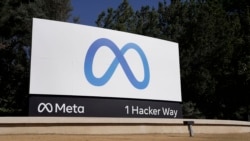Subtlety gets a lot of praise in the realm of literature.
Many readers, critics, and editors see delicacy, especially on the thematic front, as a sign of quality and challenge, which it frequently is. But gentle, subtle novels are far more common than ones that take the opposite tactic, announcing their difficulty or their defiance from the very first page — a brave strategy, and one that creates a uniquely exciting relationship between author and audience. When a book declares itself a challenge right away, its readers get to make the conscious choice to rise to the occasion. Doing so generates a sense of investment; it also heightens our expectations. If an author asks a lot of us, we get to ask a lot of that author, too.
None of the novels below pretend for a moment to be easy. Kim Hye-jin's Concerning My Daughter, translated from the Korean by Jamie Chang, demands a taxing quantity of empathy from its readers and protagonist alike; the Brazilian literary master João Gilberto Noll's erotic odyssey Hugs and Cuddles, translated from by Edgar Garbelotto, shatters any prudery or sexual squeamishness readers may bring to the book; and the Cuban writer Jorge Enrique Lage's cyberpunk Freeway: La Movie, translated by Lourdes Molina, is so disorienting that it stretches our ideas of narrative. All three books are tough — and all three are completely consuming. They demand our full attention, and then they earn it.
Concerning My Daughter
Concerning My Daughter is a tiny, blunt book. Its twin subjects are homophobia and class disadvantage, which Kim Hye-jin links on nearly every page. Kim's nameless narrator, a middle-aged widow barely supporting herself by temping in awful conditions as a nursing-home aide, cannot bear that her adult daughter, Green, is gay; indeed, just hearing her daughter say the word lesbian makes her feel like a "cornered animal." Often, the narrator's prejudice — which, Kim is quite clear, is informed both by a desire for her daughter not to be discriminated against and by real revulsion at the idea of lesbian sex — is nearly unbearable to read. Yet Kim is equally clear that Green's mother, repellent as she can be, deserves empathy. Her financial straits have driven her into a constricting survival mode: she avoids intimacy and friendship, is terrified to stand up for herself or her patients at work, and allows Green and her girlfriend Lane to move in with her rather than sell a house she can't afford, but sees as the "only thing over which I can claim control and exercise ownership."
Concerning My Daughter is often didactic, privileging message over plot. Kim lets both Green and Lane deliver monologues about their right to acceptance; she also lets the narrator monologue, if only to the reader, about the precarity of her life. None of these passages are lectures, though: Kim gives them such emotional heft that they can only be pleas. Jamie Chang's translation, which is plain yet highly precise, amplifies this effect. She leaves no ambiguity in the text, which means the reader cannot hide from the intensity of the narrator's feelings. Ultimately, Concerning My Daughter turns into a confrontation — not just between Green and her mother, but also between Green's mother and the reader. Understanding, in this book, has to come from all sides.
Hugs and Cuddles
If you were to casually leaf through João Gilberto Noll's Hugs and Cuddles, not knowing much about Noll's work, you'd assume it was erotica. (And it could be!) Noll, a highly influential Brazilian postmodernist who died in 2017, wrote frequently about queerness, defiance, and the freedom that can come from life outside mainstream society's confines. It's a theme that's quite literal in Hugs and Cuddles, which gets moving after the middle-aged narrator's great unrequited love, known as "my engineer friend," invites him to a gay orgy on a decommissioned Nazi submarine. Underwater, the narrator is shy, but after disembarking, he enters his own personal "orgiastic age," which includes bathroom-stall sex, sex with a goat, and some surprising sex with his wife. Still, he yearns for a "love affair between two mature men." When this affair finally manifests, the narrator does something that, by Noll's standards, is shocking: He moves to the jungle with the engineer, now his partner, and tries to transform himself psychologically into "the wife [the engineer] had always dreamed of." (Although, granted, he remains a "horny stud" by night.)
Hugs and Cuddles laughs at gender, but takes sex seriously. It is both prurient and philosophical, gleefully dirty and wrenchingly serious. (Except its plot, which is consciously absurd.) Edgar Garbelotto, Noll's translator, does the novel a bit of a disservice by opting not to adapt its prose to the rhythms of the English language, a decision that sometimes stalls its momentum, but Noll's portrait of a man ruled by desire is too interesting to look away from. Hugs and Cuddles intertwines its narrator's longings for sex, submission, novelty, and comfort so seamlessly that, after reading it, you may well wonder if those desires are separable at all.
Freeway: La Movie
In some ways, Jorge Enrique Lage's satirical Freeway: La Movie is perfectly recognizable. It's a picaresque buddy comedy, one of the oldest literary forms: its narrator (who, like Noll and Kim's narrators, is nameless) and his sidekick, El Autista, roam a dystopian Cuba, just like Don Quixote and Sancho Panza roamed 16th-century Spain. But while Miguel de Cervantes grounds readers in Don Quixote's setting, Lage disorients us totally. Starting Freeway: La Movie is confusing in the way the first scenes of action films often are. Events come quickly, with context lagging so behind that readers simply cannot interpret what's happening. Each chapter is a separate, surreal adventure, linked only by narrator and setting: a construction site that turns into a gigantic highway linking Cuba to the United States.
Lage delights in mockery, and Freeway: La Movie is best when he's funniest.
Sometimes his humor is absurdist, as in a chapter in which the protagonist encounters a genie who not only lives in a Coke bottle, but was once Coca-Cola's brilliant, misunderstood chief scientist. (His name, which translator Lourdes Molina smartly leaves in Spanish, is El Genio, which means both genius and genie.) But more often, Lage's jokes are political and pitch-black. His willingness to laugh at serious matters — genocide against indigenous tribes; the prison at Guantánamo Bay; highway builders' tendency to destroy poor neighborhoods — gives Freeway: La Movie an angry energy that will carry willing readers past their disorientation. Of course, Lage also mocks his readers, if only by defying our idea that narratives should make sense. Freeway: La Movie has no real storyline, just a nameless, displaced narrator who's just trying to act as "the only witness to whatever is happening." At some point, aren't we all?
Lily Meyer is a writer, translator, and critic. Her first novel, Short War, is forthcoming from A Strange Object in 2024.
Copyright 2022 NPR. To see more, visit https://www.npr.org.
Adblock test (Why?)







